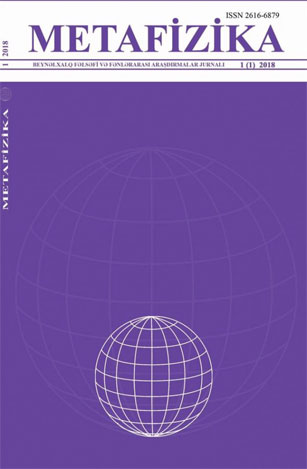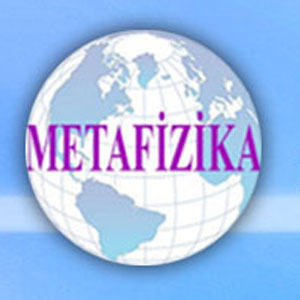Nəşrə dair tələblər
Nəşrə dair tələblər
Publication Requirements
- The author must indicate the code of “Orcid” or “ResearcherID” in the article that identifies the scientists and academics as unique.
- The article must be original, should not be presented to other publications.
- The article can be submitted in Azerbaijan, Turkish, English, Russian, Arabic and Persian for publishing in the journal.
- At the beginning of the article, after the name of the article should be indicated the name of the authors, scientific address, affiliations and e-mail address of the authors.
- The article should be consist of summary, introduction, subheading or headings, result and list of used literature.
- At the beginning of the article should include a summary of 200-250 words and keywords in the original language of the article.
- A summary of 200-250 words and 5-7 keywords in the original language should be added to the beginning of the article.
- The summary must be consistent with the content of the article.
- Regardless of the original language, all articles should be summary and keywords in Azerbaijan, English and Russian.
- The article must be submitted to the editorial office in the A4 format, with the distance of 2 cm from top and bottom, 3 cm from left, 1 cm from right, with 1.5 intervals, Times New Roman font and written in 12 measured letters in the electronic version. E-mail address: metafizika.az@mail.ru; journalmetafizika@gmail.com
- All figures, photographs, tables, or drawings should be named and numbered. The headings of the tables and pictures should be written in bold.
- Articles must be clearly presented and have the purpose for the readers. The Editorial Board solicits and encourages publication of worthy papers with a length not exceeding 25 published pages (approximately 10,000 words). Those of a length exceeding 25 pages, but containing very important results, can be published by the consent of the Editorial Board. If an article contains material reproduced from other sources, the necessary written permission from the authors and publisher must accompany the paper.
- Information material, such as notifications about conferences, books, jubilees, etc. may also be published under the “Information” heading.
- It is necessary to refer the journal, when using materials from the journal.
- All submissions are scanned for possible plagiarism. When plagiarism is detected and confirmed, the article is immediately rejected for publication and the offending author is blacklisted from further publication.
- Articles are made available on the journal website as full-text pdf format.
- References according to the APA system must be in alphabetical order with considering author`s surname.
BOOK
Single Author
Daniel Jeremy Silver and Bernard Martin, A History of Judaism (New York: Basic Books, 1974), I, p. 39.
If the same source is repeated: Silver and Martin, A History of Judaism, I, p. 40.
Two Authors
Ömer Lütfi Barkan ve Ekrem Hakkı Ayverdi, İstanbul Vakıfları Tahrir Defteri 953 (1546) Tarihli (İstanbul: İstanbul Fetih Cemiyeti, 1973), s./ p. 520-26.
If the same source is repeated: Barkan ve Ayverdi, İstanbul Vakıfları Tahrir Defteri, s./ p. 159.
Three or More Authors
Bekir Topaloğlu v.dğr./and others, İslâm’da İnanç Esasları, (İstanbul: Marmara Üniversitesi İlahiyat Fakültesi Vakfı Yayınları, 1998), s./ p. 25.
If the same source is repeated:Topaloğlu v.b./and others, İslâm’da İnanç Esasları, s./ p. 36.
ARTICLE
Ahmet Kavas, “Doğu Afrika Sahilinde Osmanlı Hakimiyeti: Kuzey Somali’de Zeyla İskelesi’nin Konumu (1265-1334/1849-1916),” İslâm Araştırmaları Dergisi, 5 (2001), s./ p. 109-20.
İkinci dəfə qeyd olunarsa:
Ahmet Kavas, “Doğu Afrika Sahilinde Osmanlı Hakimiyeti,”s./ p. 120-121.
ENCYCLOPEDIA ENTRIES
1. Ömer Faruk Akün, “Ali Mustafa Efendi,” Türkiye Diyanet Vakfı İslâm Ansiklopedisi (DİA), 1989, II, 416.
2. Akün, “Âlî Mustafa Efendi,” s./ p. 417.
ARCHIVAL DOCUMENTS
1. Başbakanlıq Osmanlı Arxivi (BOA), İrade Mesâil-i Mühimme (İ. Mes. Müh), 2079.
2. BOA, İ. Mes. Müh., 2079.
DISSERTATION
1. Sedat Şensoy, “Abdülkahir el-Cürcani’de Anlam Problemi” (doktorluq dissertasiyası/doctoral dissertation), Marmara Universiteti Sosyal Bilimler Enstitüsü, 2001, s./ p. 122.
ONLINE RESOURCES
1. Alane D. Oestreicher, “Worldwide Traditions of a Primordial Paradise” no. 192, Vital Articles on Science/Creation;(Erişim 27 Mart 2003/ Accessed on March 27, 2003).
- Tarix:2022-01-27





